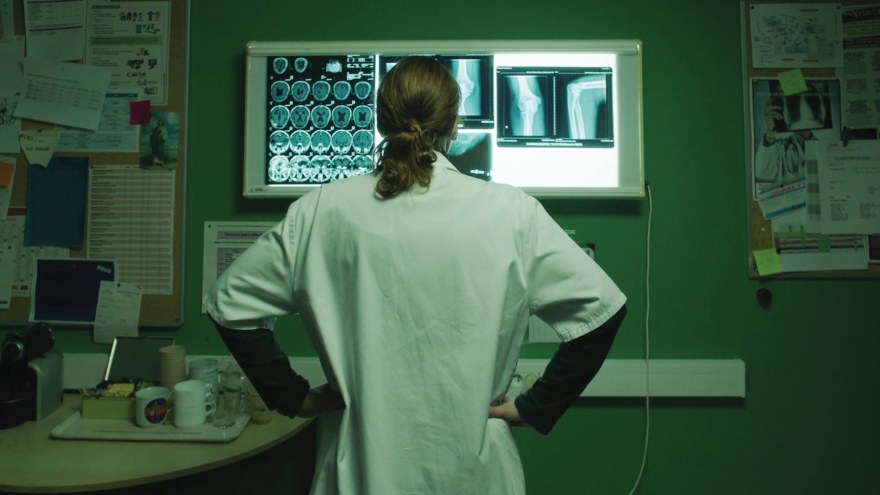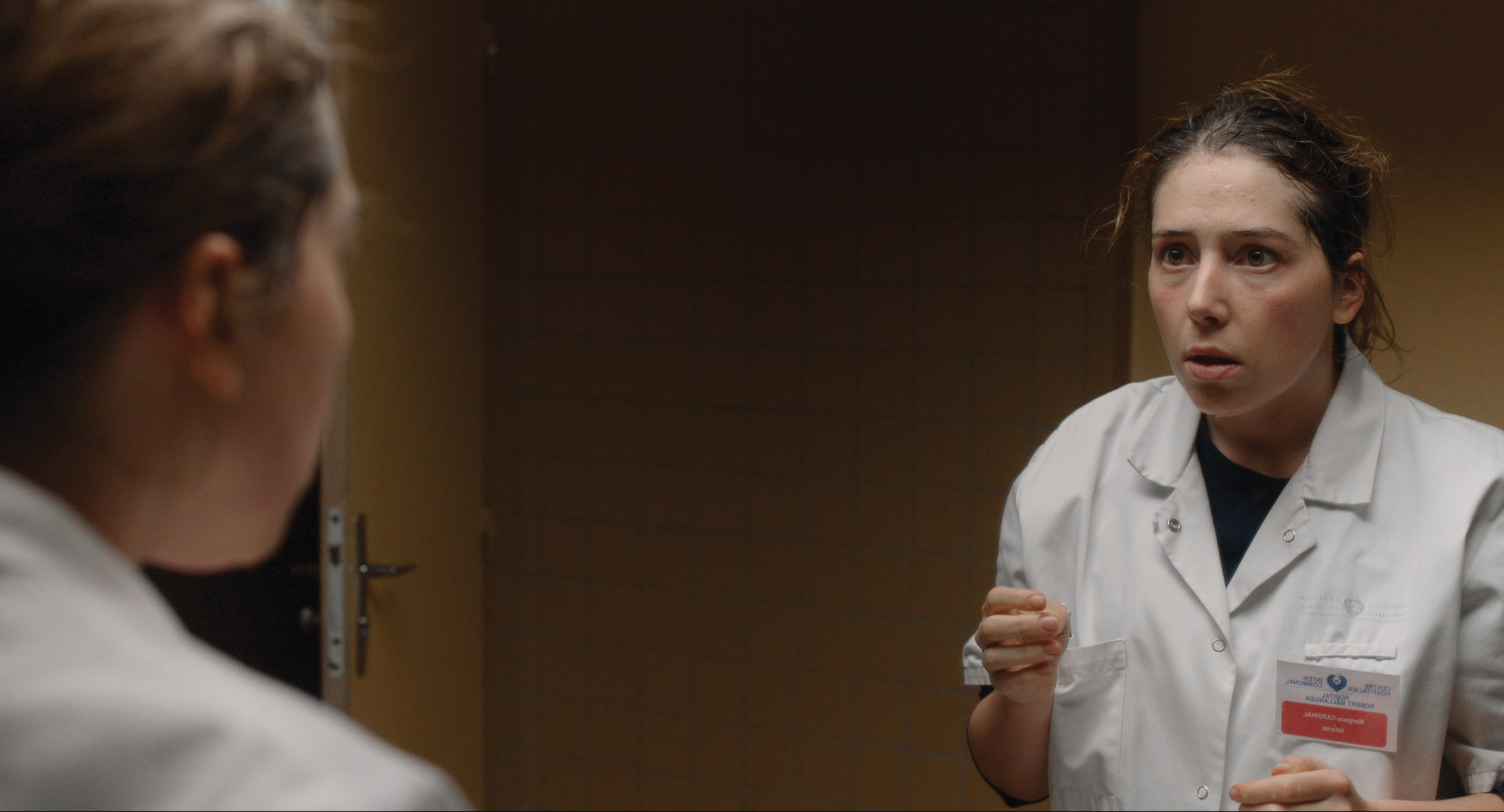Tea time with Dieu n’est plus médecin [No More God in Doctor]
Interview with Marion Le Corroller, director of Dieu n’est plus médecin [No More God in Doctor]
How did you get the inspiration for Dieu n’est plus médecin? Have you ever worked in a medical environment?
The idea for the film came while I was chatting with a young doctor friend over coffee. She was exhausted, on the verge of burnout, and had developed shingles all over her body. I remember feeling a lot of pain for this aspiring doctor, and I felt a lot of anger, too. How could a country like France, with one of the most envied healthcare systems in the world, abuse its caregivers like this? A little while later, I had my own health concerns and I went back to the hospital for repeated medical visits. I was able to observe the caregivers closely, build relationships with some of them, and gather research. The writing of the film began like this. Then, I was lucky enough to be taken in for an internship to observe how things work in an emergency room. It fueled the script enormously.
Do you work specifically on the relationship to the human body in general? Do you plan to continue this approach in your next projects?
The body is clearly an object that interests me. You could even say it obsesses me! Its relationship with the mind, its transformations based on our neuroses, our progress in life, our traumas, I find all of this fascinating! My two previous short films were already closely linked to this theme and my first feature film will remain on this same course. I believe that the body is, in a way, a reflection of our soul. It tells a lot about the characters, and it is a reflection of the times we live in.
Have you done any research on traumatic states and the feeling of “losing your footing”?
I mainly relied on interviews with caregivers whose bodies were damaged in some way. Every individual shows burnout in a different way: rash, migraines, stomach aches, discomfort… Not to mention those who have attempted suicide or who watched a colleague take their own life. For a doctor to lose their footing is inconceivable. There is something in the collective imagination that says the caregiver cannot be the wrongdoer. This is the reason why many remain silent. They are ashamed. The code of silence is very strong in hospitals.
What interested you in the choice of bleeding?
Blood is the nectar of life. To sweat blood is to slowly approach death. As a tree will empty of its sap and begin to rot, so does my heroine. She sweats blood and water, in the true sense of the word. And then there is this passage from the Bible where Jesus begins to sweat blood before he goes up on the cross. I found the parallel interesting with our caregivers who politicians “crucify” by closing available beds, reducing staff, budgets …
What do you think the future holds for short films?
For me, the short film remains an essential rite of passage before moving on to features. It allows you to test a lot of things, to train your team of technicians, actors… It is a kind of laboratory where many talents abound. I don’t think this format will ever disappear and I think it’s a shame that we can’t see more of them at movie theaters!
If we were to go back into lockdown, what cultural or artistic delights would you recommend to alleviate our boredom?
For future pandemic waves, I advise you to see movies, of course. During the first two lockdowns, I watched two to three films a day (which considerably worsened my eyesight, by the way…). Writing too, and dreaming. There is no such thing as boredom. It is simply the result of a lack of initiative and a lack of curiosity. We must open our eyes!
To see Dieu n’est plus médecin [No More God in Doctor], go to the F2 screening of the National Competition.









